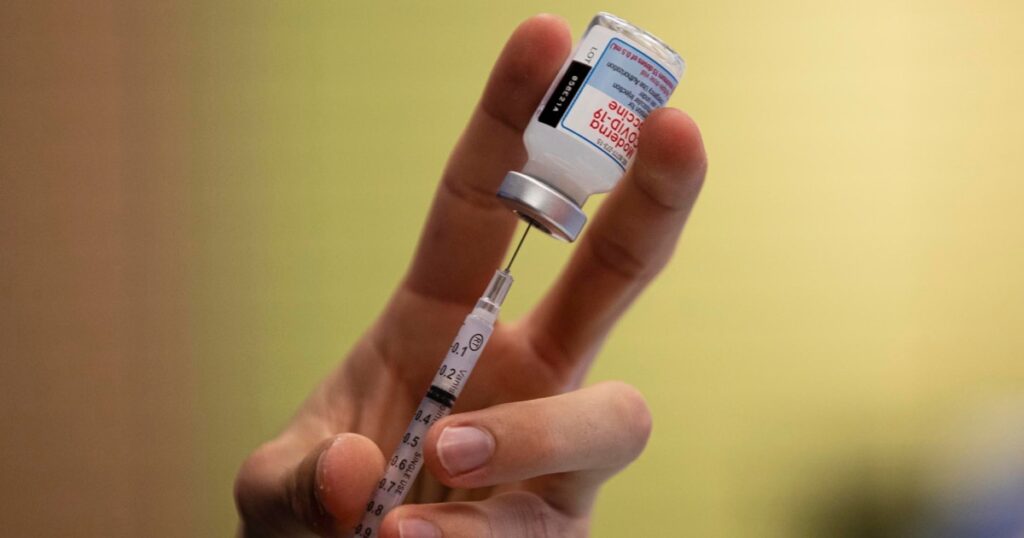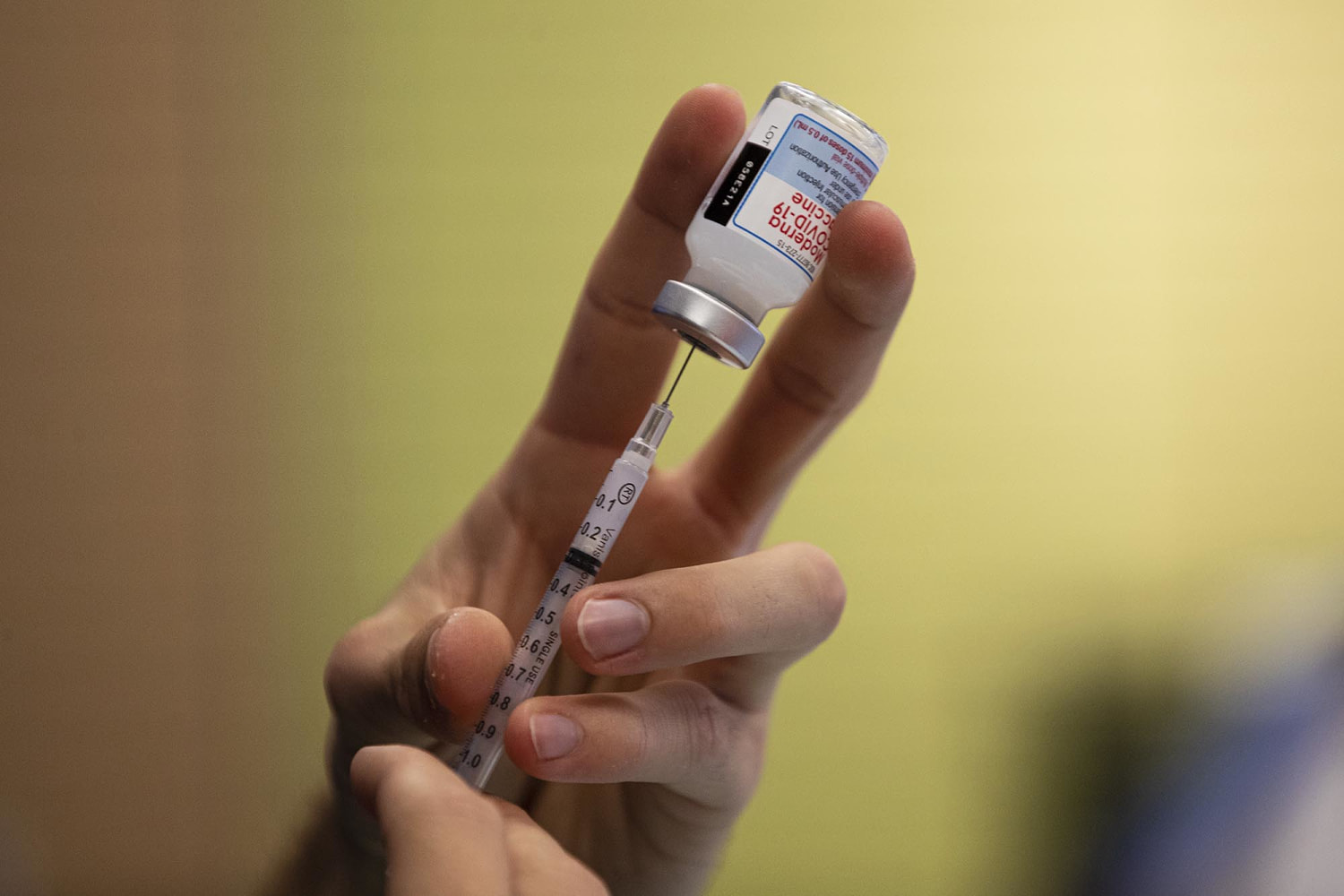

Moderna’s combined Covid and flu shot outperformed the existing standalone vaccines for both viruses, according to the results of a phase 3 clinical trial published Wednesday in the Journal of the American Medical Association.
The vaccine uses the same messenger RNA technology as Moderna’s approved Covid vaccine. (There are no approved mRNA-based flu shots.)
The trial, funded by Moderna, included more than 8,000 adults ages 50 and older who were enrolled in October and November 2023. For people ages 50 to 64, the new vaccine was compared to Moderna’s Covid vaccine and the flu shot Fluarix. For people 65 and older, it was compared to the Covid vaccine and a different flu shot, called Fluzone, which is a stronger dose typically given to older adults. The trial participants either got the existing shots, or the new combination vaccine plus a placebo shot. (This way, both groups got two injections.)
The main goal of the trial was to see whether the combination vaccine generated more antibodies in blood samples than the current shots against multiple strains of influenza and the XBB.1.5 Covid variant. This so-called serological testing is a common way for researchers to gauge how well a vaccine shot might work and how long the protection might last.
The trial found that antibody levels were higher for Covid and all but one influenza strain in people who got the combination vaccine, compared to those who got the existing shots in both groups.
Dr. Buddy Creech, a pediatric infectious disease physician at Vanderbilt University Medical Center in Nashville, Tennessee, said the antibody levels generated by the new vaccine were about 20% to 40% higher.
Dr. Jesse Goodman, a professor of medicine and infectious disease at Georgetown University and former chief scientist at the Food and Drug Administration, said the trial results are a good sign that the combination shot will provide protection against both Covid and the flu.
“We know that antibody responses generally correlates with a degree of protection,” Goodman said. “This is very promising and it suggests this vaccine should have similar or higher levels of protection to traditional flu vaccines.”
Side effects such as fever and chills were more common in people who got the new vaccine. Creech attributed that to how the body is responding to the vaccine.
“Immunologically, what’s happening in each cell is they’re acting as if they’ve been infected with both viruses, and so your immune system is going to respond and make the type of inflammation that you would if you had flu or Covid or both simultaneously,” he said.
A combination shot would make it easier for people to get vaccinated against both Covid and the flu, especially since both shots usually come out in the fall. A new shot that provides better protection is needed, experts say, because the existing vaccines don’t do a good job at stopping infections.
The data is expected to be used to support Moderna’s application to the FDA for approval. Last week, Moderna said it doesn’t expect regulatory approval for its combination shot until 2026, after the agency said it required late-stage data showing the shot’s efficacy against the flu.
It’s unclear whether the agency’s new rule that all new vaccines will need to undergo placebo-controlled clinical trials to gain approval will apply to the combination shot. The FDA already delayed Novavax’s Covid vaccine, requiring an additional clinical trial, and may impose the requirement for Pfizer’s and Moderna’s updated Covid vaccines for the fall.
A Moderna spokesperson declined to comment. An HHS spokesperson did not immediately respond to a request for comment.
Dr. Peter Hotez, dean of the National School of Tropical Medicine at Baylor College of Medicine and co-director of the Texas Children’s Hospital Center for Vaccine Development, noted that mRNA vaccines are a particular target among anti-vaccine activists, and several states have introduced legislation that would ban them.
“One of the things I’m concerned about, at least for the United States, is all the anti-vaccine sentiment, and this specific targeting of the mRNA vaccine platform by anti-vaccine activists,” he said.
Hotez said Moderna’s combination shot would be “a potentially very useful advance,” as it would only require people to take one shot for two respiratory virsuses.
“If this works, you could also use it for adding RSV or as well as other pathogens,” he said.
Goodman, of Georgetown University, said an mRNA-based shot that also targets the flu could help the U.S. respond more quickly if there were a pandemic caused by influenza. The current flu shots primarily rely on growing strains the of the virus in eggs, which is slower to make compared to the mRNA vaccines.
 Latest World Breaking News Online News Portal
Latest World Breaking News Online News Portal






